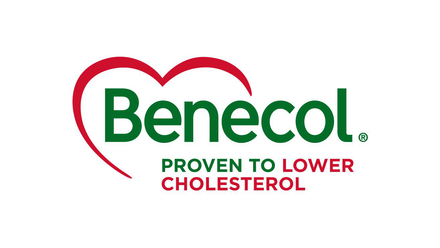Which companies and products are affected by this new policy?
The food industry is large, global and fast moving which means that multinational organisations have a range of food, drink, personal care and medical products. The BDA believes it remains important to have commercial relationships with a wide range of organisations and this policy is designed to help us support dietitians and dietetic assistants in practice to access CPD within BFI guidelines.
Only the receipt of sponsorship for events from BMS product divisions of companies who manufacture breastmilk substitutes or supply ingredients to the sector are included in the scope of the policy. That means we will retain our commercial relationship with the parent company and other divisions within the wider business. We believe this to reflect UNICEF’s aims.
The BDA may still engage in dialogue with BMS manufacturers on infant feeding topics in order to influence and advocate, but these relationships will be outside of a sponsorship context.
Why are FSMP products included in the policy?
Our policy aligns to the UNICEF definition of a breastmilk substitute. This is;
‘Any food (solid or liquid) being marketed, otherwise represented or used as a partial or total replacement for breastmilk, whether or not suitable for that purpose’.
Additional EU regulations have restricted some labelling practices in an attempt to further protect breastfeeding (Regulation on Food for Specific Groups).
In terms of milk products, recent WHO guidance has clarified that a BMS includes any milks that are specifically marketed for feeding infants and young children up to the age of 3 years. This means that special formulas for infants with special medical or nutritional needs up to the age of 3 years also fall under the scope of the UNICEF definition.
Are breastmilk fortifiers included in the policy?
Even though they are not technically a BMS, the policy includes these products as many have the same branding as the BMS products.
Are complementary foods included in the policy?
Since exclusive breastfeeding is to be encouraged for six months, any food or drink during this period is a breast milk substitute and thus covered by the UNICEF definition. This would include baby juices and waters, as well as cereals, ready to eat baby meals, including bottle-fed complementary foods, and other products marketed or otherwise represented for use before six months.
Complementary foods for use after six months are not included in the policy. However, the BDA will reconsider this when brands are deemed to be unclear on the age suitability of the products.
Are follow on milks and bottle-feeding products included in the policy?
Since continued breastfeeding is to be encouraged for two years or beyond, any milk product shown to be substituting for the breast milk part of the child’s diet between six months and two years, such as follow-on formula, ‘toddler’ or ‘growing up milks’, are breast-milk substitutes and are thus covered by the UNICEF definition. The UNICEF definition also applies to feeding bottles, teats and soothers.
Are enteral feeding sets and tubes included in the policy?
There is no explicit advice on this in the UNICEF definitions. The BDA considers these devices to be outside the policy so community contracts which include this are permitted for sponsorship provided that the company does not bring BMS products or materials to the event.
I don’t practice in a clinical setting, what does this policy mean for me?
The BDA is aware that currently dietitians in different settings are affected by the requirements of BFI in different ways. However, we would encourage all members to work to this policy and read our separate guidance on compliance with BFI accreditation.
Why aren’t advertising and other commercial activities included in the policy?
The BDA Board of Directors have discussed a variety of approaches to this issue and agreed that currently the policy will only relate to BDA events, as this is what is required by the BFI.
As part of the ongoing monitoring of the guidelines that support wider commercial work, there are likely to be other clarifications on how we work with advertisers, project partners, insights customers and corporate members too. These will not be restrictive, but more around transparency and clarity on how we expect businesses to work within our policy and other international guidance as recognised in the policy.
However currently the BDA Board of Directors have agreed that this policy is an appropriate adjustment in the current context, with a review in 12 months.
Will the cost of BDA events increase?
BDA events usually involve a range of commercial sponsors in order to control costs for delegates and offer access to other updates outside of the educational sessions. Some events with broader themes will still be able to attract a wide range of sponsors, but others such as specialist paediatric group or allergy training events or study are likely to have included more BMS brands and BMS division sponsors.
A new model will be developed for these events and it is very possible that delegate fees will increase for such events. The BDA recognises the constraints on educational budgets within the NHS and for dietitians who are self-funding CPD and this will be a consideration in any new model.
How will the policy be implemented?
The BDA will be working with specialist groups and branches on the implementation of this new policy. This means that:
- No brand-level sponsorship will be permitted at BDA events for BMS products.
- No BMS product or information on breastmilk substitutes may be promoted at BDA conferences, seminars or meetings.
- Organisers of BDA meetings (including group and branch volunteers) may invite representatives from BMS manufacturers to speak at any BDA event. However, no sponsorship fee can be requested for these activities if the topic is on infant feeding for children aged under three years. These presentations should only focus on scientific updates to update dietitians for their clinical practice. Similarly, BMS manufacturers may be invited to provide information which the organising committee feel supports the delivery of the event learning objectives, but no sponsorship fee can be accepted.
What about dietitians who work for BMS manufacturers?
It is important to emphasise that the strength of the BDA community is that it includes a diverse range of practitioners. Company representatives from BMS manufacturers who are dietitians may register to attend any BDA event as delegates for clinical updates to support their practice and development. The BDA will be informing companies that they should not ask dietitians that they employ to attend solely to gain commercial intelligence, but to benefit their role as a dietitian in general. We would expect all of our members to act in a professional manner.
What about BMS samples for training events?
Where dietitians are receiving structured education on infant feeding and therefore require access to samples, this is still acceptable, but the samples must be requested by the dietitian leading the course and company representatives should not be invited to participate in the meeting. A range of products from different manufacturers will be used if available on the UK market for the conditions being discussed.
How will the policy be enforced?
We are implementing the policy to provide a supportive environment for all dietitians to access the information and education they need to continue safe patient care. It is not intended to create division or be used to imply conflicts of interest. Although guidance has been drafted, the BDA office will be considering real life scenarios as they evolve and making decisions on a case by case basis.
More information
BDA commitment to transparency
The policy is effective from August 2020* and will be reviewed in March 2023. Dietitians who are seeking clarification on its implementation should contact the BDA event organiser listed on the relevant publicity materials or email [email protected] in the first instance.
If you feel there is a breach of the policy and wish to raise it with the BDA please contact the office via [email protected] or the Honorary Chair via [email protected]
* Policy publication date updated to August 2020 as being implemented after the BDA response to COVID-19 which delayed its finalisation. Review date to stay as March 2023.





